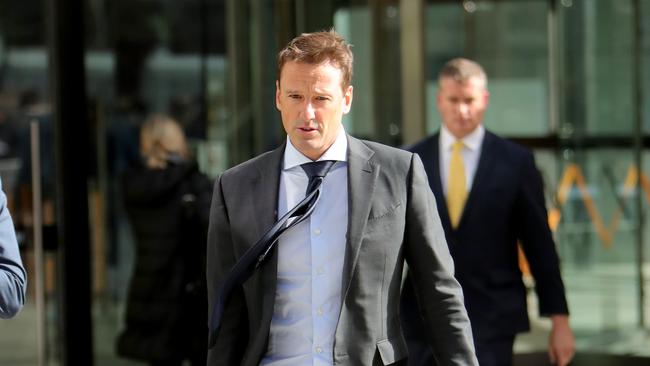What do banks running super funds do all day?

Comment
What do they do all day running these bank super funds? Certainly at NAB it seems designing account charges, keeping the adviser network happy and staying one step ahead of the regulators rank very high indeed.
If things go wrong, you can try at least try to push the blame on the lower ranks — a move which backfired at the Royal Commission when NAB counsel Neil Young QC tried to suggest efforts by the bank to keep charging a fee to which it was not entitled had emerged from “a low level”.
But minutes later we learnt senior management at the bank had actually discussed the same ideas.
And if things go very wrong — to the point where compensation must be paid for bad behaviour — well, the bank must be thorough. More thorough than you could possibly imagine.
Oddly, on this occasion the customer suddenly comes first, or at least the hunt for affected customers gets exaggerated priority.
So thorough is the bank in its search for anyone who might possibly be affected, that those customers definitely affected have to wait two years before the money finally gets paid out.
There is already $850 million owed by the banking industry in compensation for wrong charges, and every chance now that figure will lift higher following these hearings.
What a miserable business: Emboldened by a cosy oligopoly we find a bank corporate affairs manager reassuring the bank’s CEO Andrew Thorburn that they are in the “middle of the pack’’ when it comes to payouts.
We find the bank moving to reset its fees and charges when they knew a new regulation regime — the so-called Future of Financial Advice reforms was coming down the track.
We find the bank being economical with the truth in dealing with ASIC on key issues. NAB, in common with every other bank, must surely find it useful that there are three regulators involved in superannuation — ASIC, APRA and the ATO — yet there is no clear top dog in the framework.
And we know all this from the exceptional revelatory powers of the Royal Commission where the latest release of internal bank memos paint a picture of a major bank which is certainly agile, though unfortunately not in the manner the management textbooks might recommend.
Today’s session was substantially preoccupied once more with definitions of fees and commissions. A long and exhaustive examination of the bank’s practices was largely shouldered by one executive, Paul Carter, who defended a very unimpressive system in an impressive manner. It’s going to take every inch of skill from Hayne and his team to get meaningful results — beyond compensation for past sins — from this all-important division of the financial services system.



To join the conversation, please log in. Don't have an account? Register
Join the conversation, you are commenting as Logout